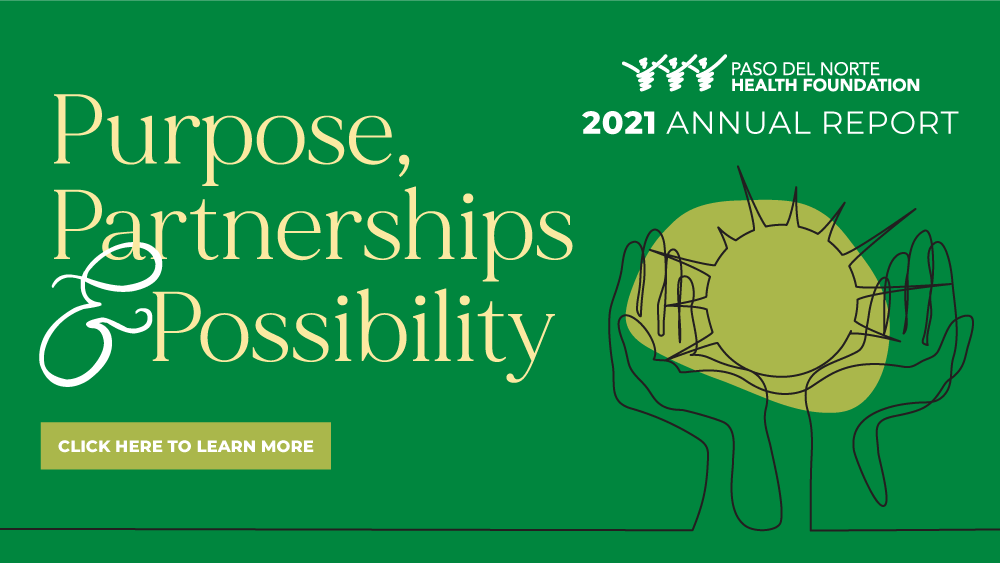News
Practice emotional self-care and teach children and youth to do the same
December 14, 2021
In recent weeks, a coalition of the nation’s leading experts in pediatric health declared a national emergency in child and adolescent mental health. The group came together to make a unified call to action for added system supports because of data that show alarming increases in child and youth mental health conditions.
Proactively addressing child and youth mental health takes support from the whole community. The good news is that each of us can make a meaningful contribution. As parents, grandparents, caregivers, neighbors and friends, we must all recognize the importance of emotional well-being, practicing self-care, helping others and teaching children and youth to do the same. Emotional well-being has been defined as an overall positive state of one’s emotions, life satisfaction, sense of meaning and purpose, and ability to pursue self-defined goals.
Children and youth deserve to learn, play and grow in a nurturing environment that fosters emotional well-being and keeps timely access to professional help close at hand. As the year comes to a close, let’s all take action and use some of the most powerful tools we have to promote mental health and emotional well-being including preventing social isolation and making use of technology.
Research has shown that developing, maintaining, or strengthening connections with others and seeking out ways to help those in need can yield huge contributions to our own emotional well-being. For example, researchers from Stanford Medicine found that a strong social connection leads to: a 50 percent increased chance of longevity, strengthens your immune system, helps you recover from disease faster, and may even lengthen your life. People who feel more connected to others have lower levels of anxiety and depression. Moreover, studies show that people with strong social connections have higher self-esteem, greater empathy for others, are more trusting and cooperative and, consequently, others are more open to trusting and cooperating with them. Social connectedness helps to generate a positive feedback loop of social, emotional and physical well-being.
Misuse of technology may be a risk factor in child and youth emotional health, but we are also learning that proper use can be an asset. Technology can help us set aside and make good use of relaxation and meditation time. Smart phone apps, video conferencing capabilities, and other virtual program advances are creating new and effective ways to practice relaxation techniques such as mindfulness, develop coping skills and even visit with a mental health professional in the privacy of your own home.
Let’s all take some time to make a unified call to action for our own emotional health and the health of our community’s children and youth. Creating a nurturing environment does not have to be expensive. In many cases just taking time to add a little love, caring can create huge payback now and for future generations.
To learn more about age-appropriate relaxation and calming activities visit:
- Emergence Health Network provides relaxation and calming activities for adults and youth: CCP Relaxation Calm Room or https://ccprelaxation.org/youthcorner/
- The Okay to Say campaign provides resources for children and youth to learn more about their mental health: https://okaytosay.org/kidzone/
For more information on mental health services or to connect with help for mental health or substance use conditions contact:
- Emergence Health Network: 915-779-1800, www.EmergenceHealthNetwork.org
- NAMI El Paso: 915-778-5726, namiep.org
- El Paso Child Guidance Center: 915-562-1999, epcgc.org
- Paso del Norte Children’s Development Center: 915-544-8484, pdnchildrens.org
- United Way Community Resiliency Center: 915-400-7401, www.ElPasoUnitedCRC.org
- Aliviane Inc.: 915-782-4000, aliviane.org
- Recovery Alliance and Punto de Partida: 915-479-3152, www.RecoveryAlliance.net
- Family Service of El Paso: 915-781-9900, www.FamilyServiceofElPaso.org
- Project Vida Health Centers: 915 - 465-1191. https://www.pvida.net/
- San Vicente Family Health Centers: 915 - 859-7545 ext. 1248. https://www.sanvicente.org/
- Centro de Salud Familiar La Fe: 915- 545-7055, https://lafe-ep.org/social-services-2/
(Note: Information about an organization, private practice or self-help group does not imply endorsement and is not intended to replace advice from your doctor or other licensed health professional.)
Back to News

